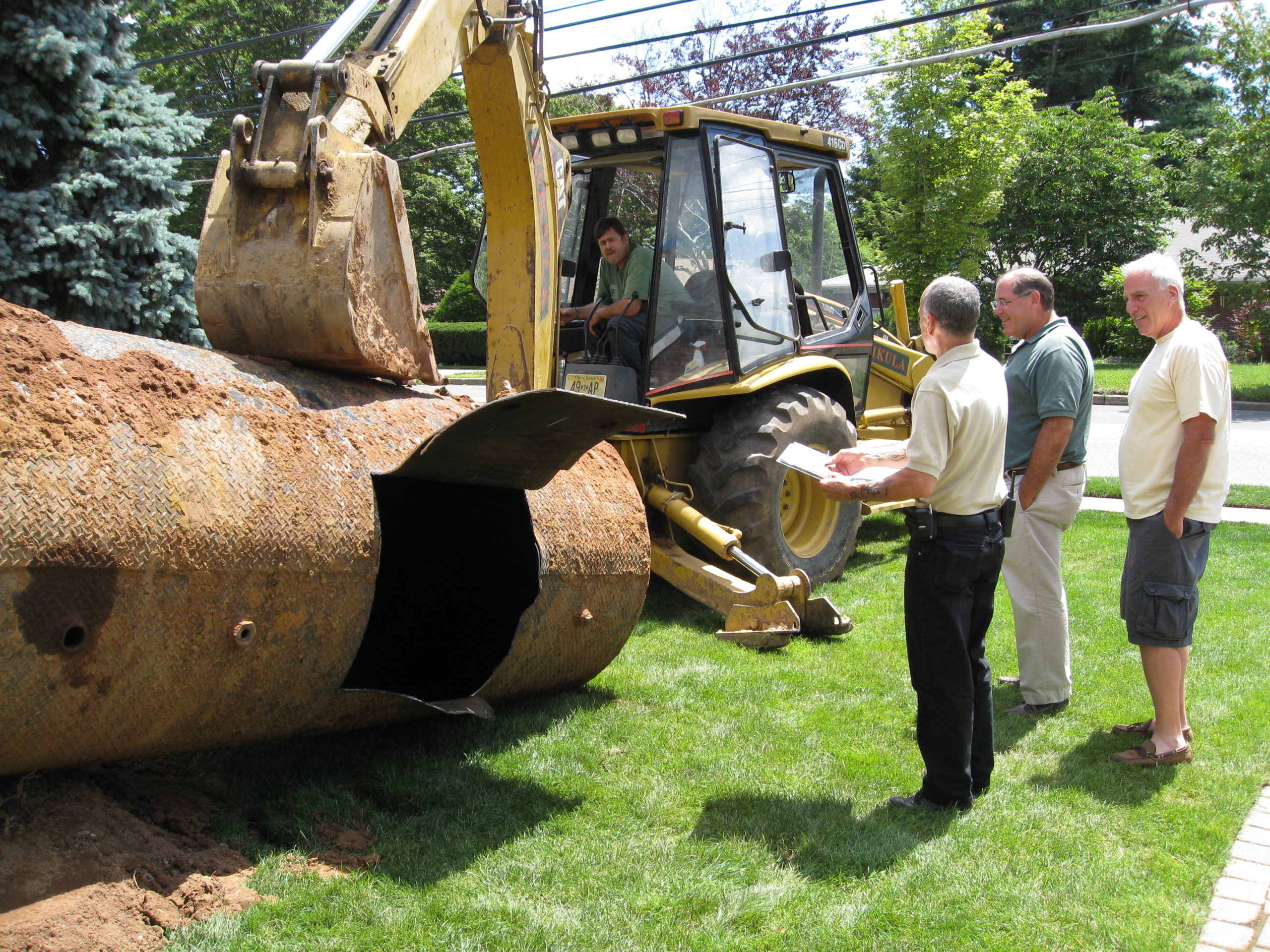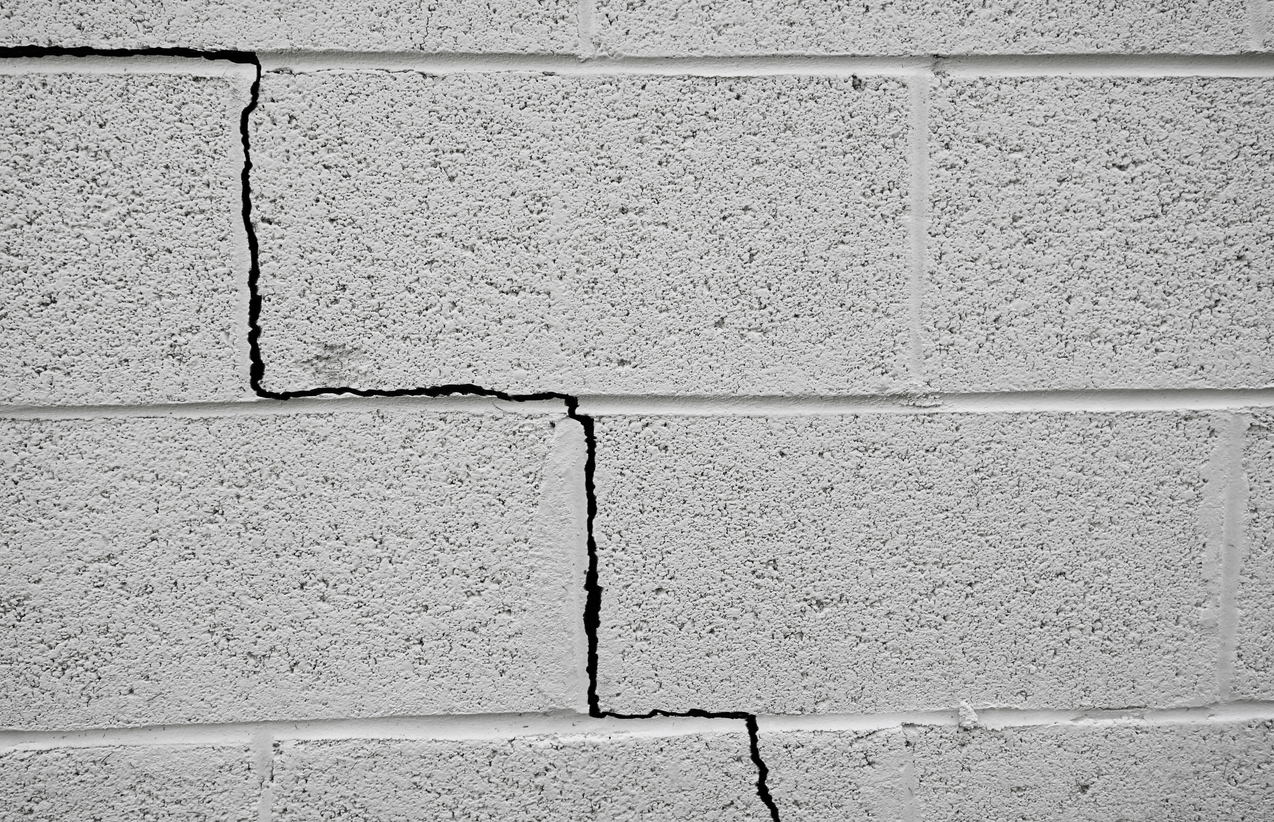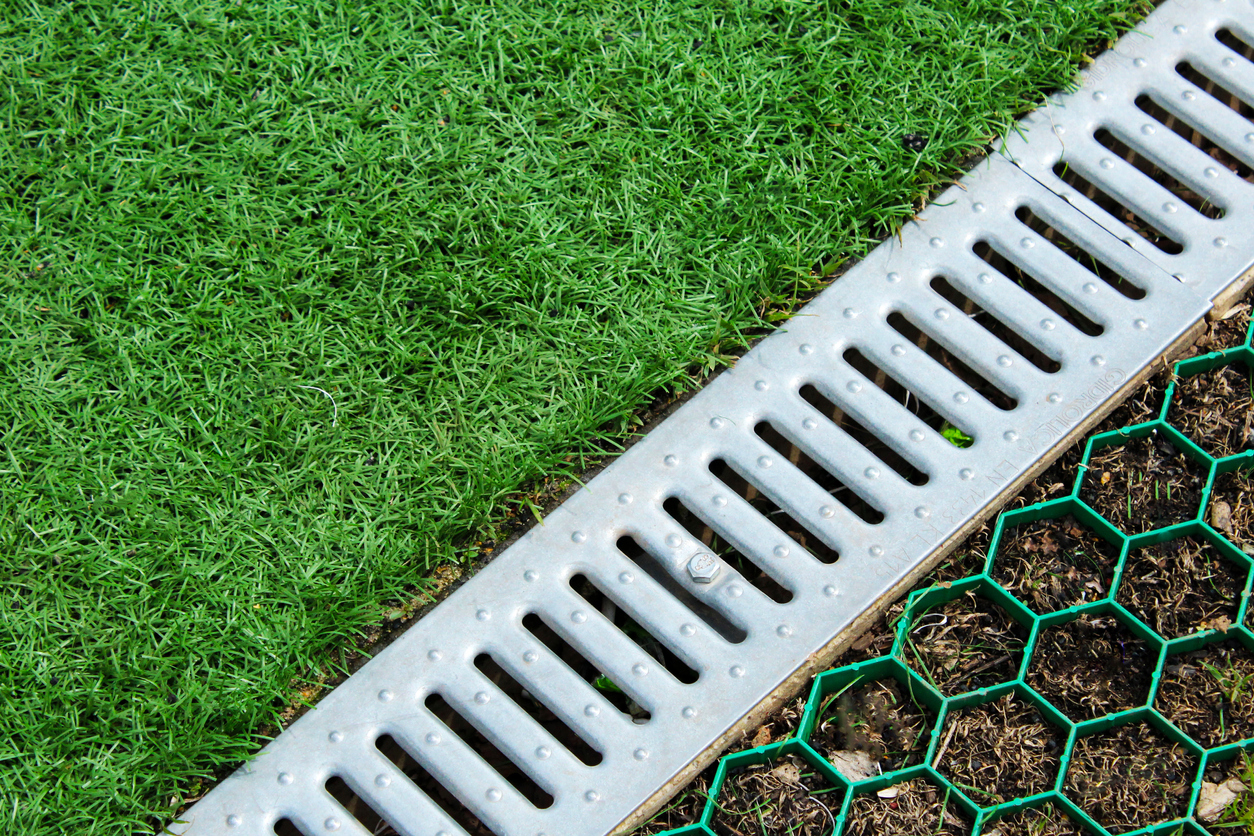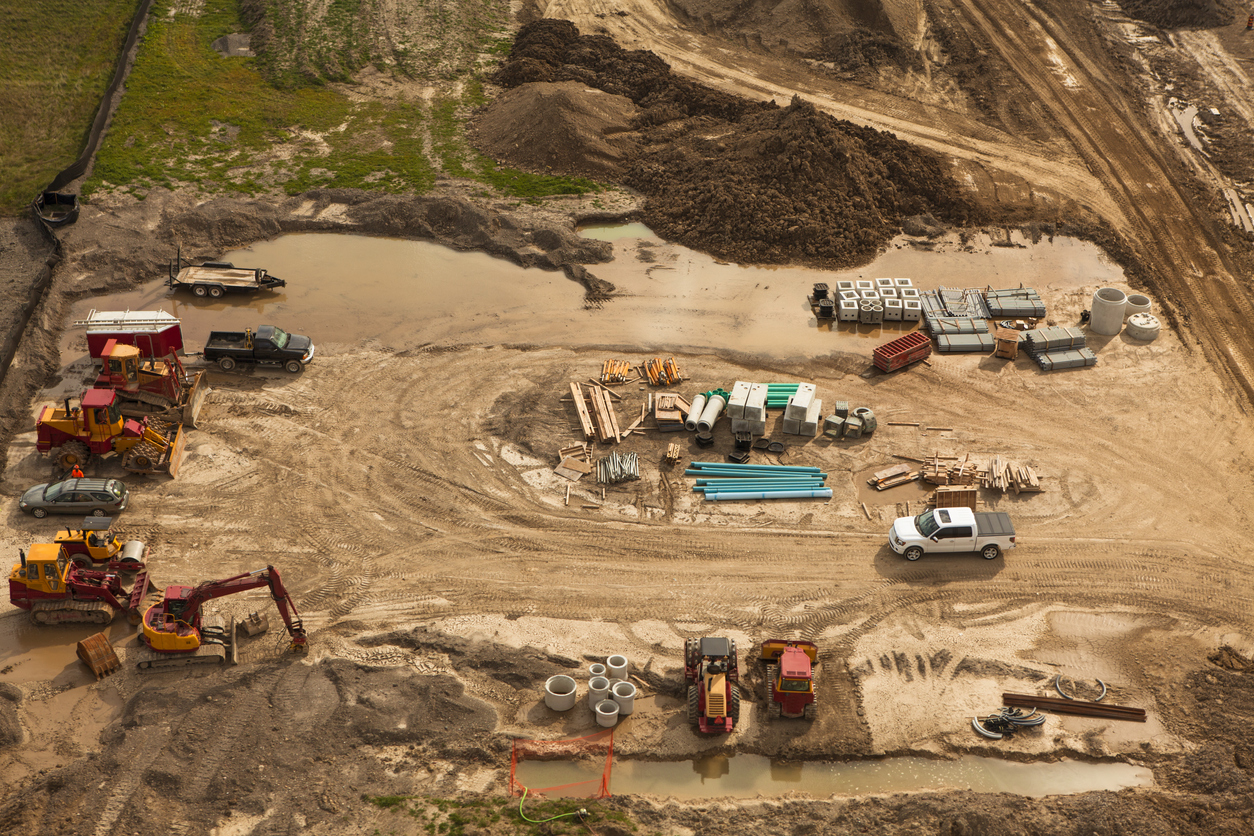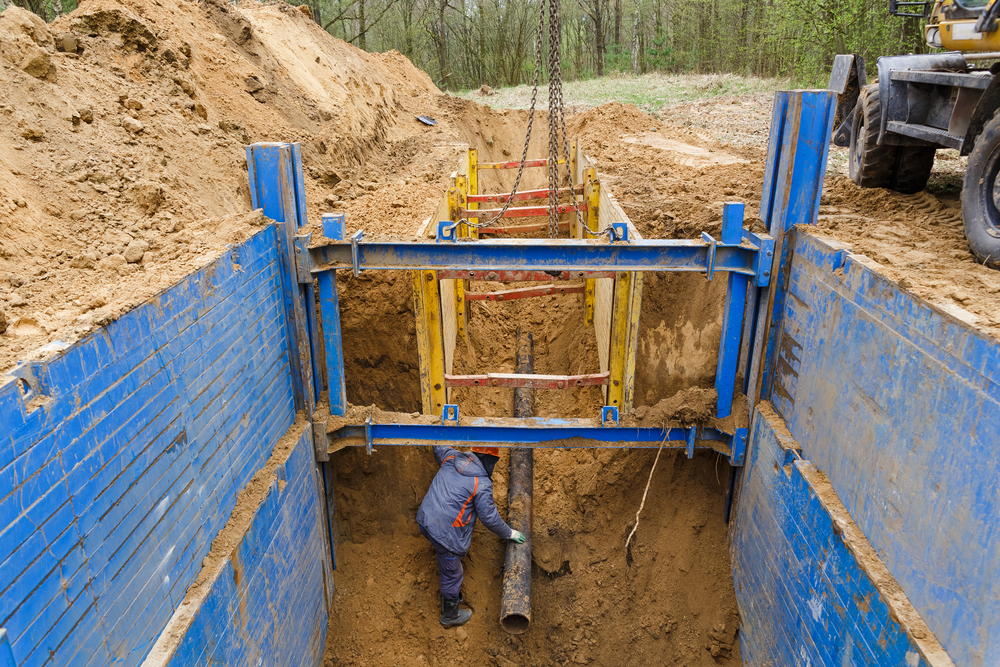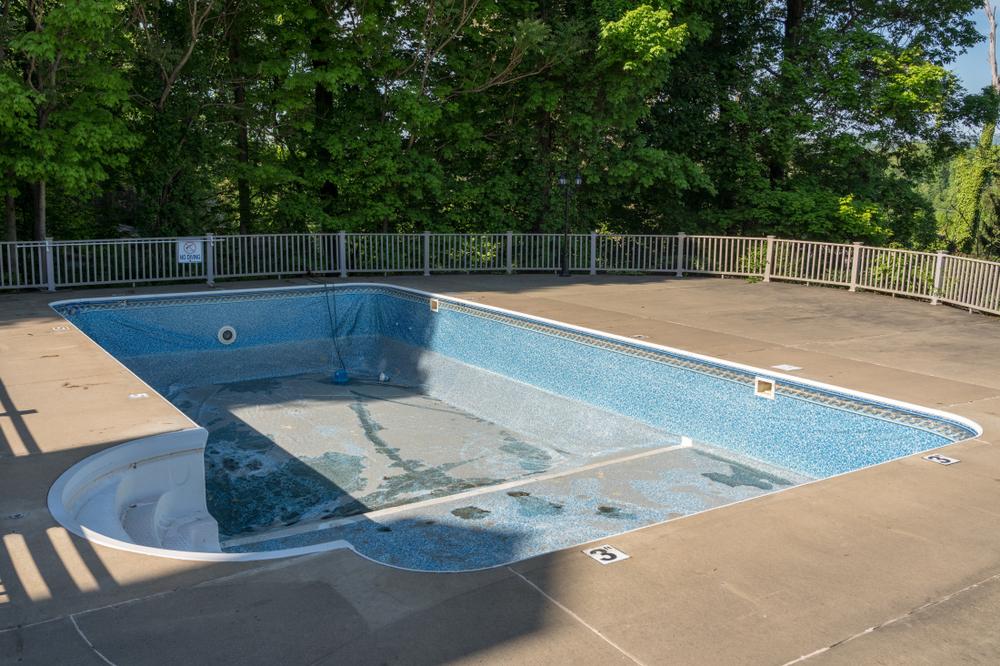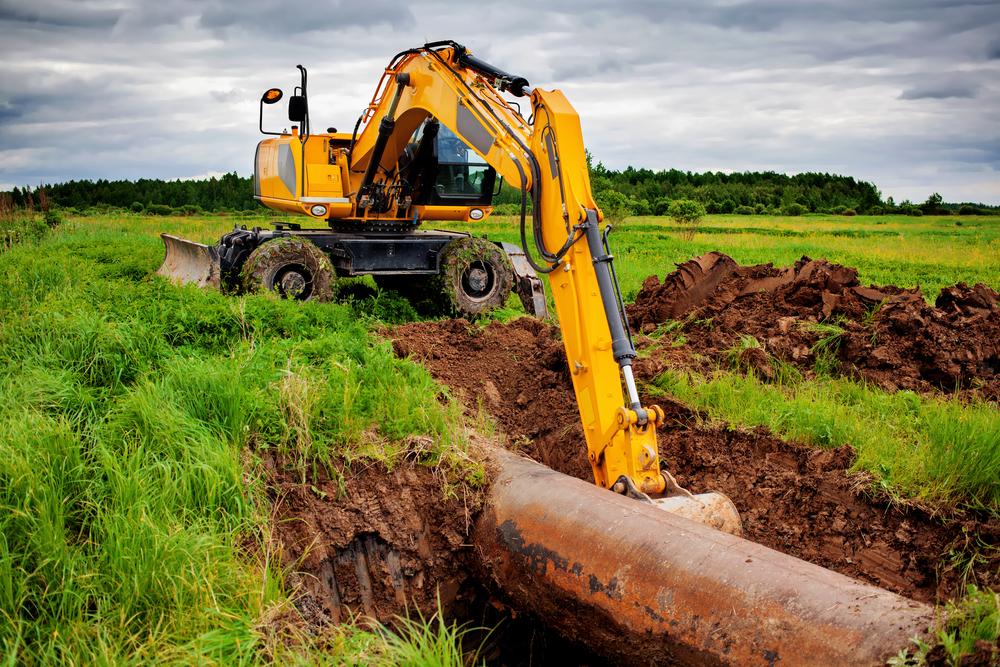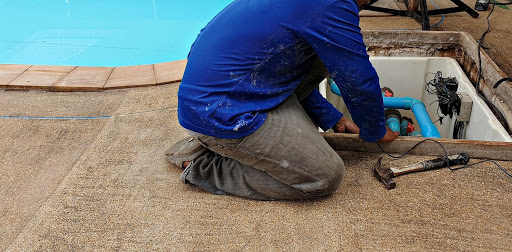Is a Pool Worth It? The Pros and Cons of Pool Ownership
Is a pool worth it? If you’re an inground swimming pool owner, it’s likely this question has popped in your head at some point. Sure, there are perks to having a pool in your backyard, but there are also some drawbacks you might not have thought about when having it installed.
We’re going to go through some of the major pros and cons to having a pool in your backyard so you can decide if a pool is right for you. If you currently own an inground swimming pool and are deciding as to whether or not it is worth it, this blog should help you make a final decision as to whether you want to keep it, or if you should schedule a pool removal!
Pros
Relaxation
One of the most undeniable perks of having an inground swimming pool is how relaxing it is. After a long or stressful day, there’s nothing quite like taking a nice, long, relaxing dip in your own pool.
Entertainment
If you host many barbeques and parties throughout the year, your swimming pool is most likely a big hit with your guests. In fact, a pool can easily make a home the go-to pool party house.
If you love entertaining, then this is the perfect reason to consider having a swimming pool installed. However, on the flip side, if you’re not a fan of hosting parties and barbeques, you might want to think twice about a new swimming pool.
Exercise
Swimming is one of the best full body exercises one can do. Working out your upper body, lower body, and core, getting into a pool really is an all encompassing workout. If you install a pool into your backyard, you can cancel your gym membership and exercise from the comfort of your own backyard’s pool.
Private
Everybody likes some level of exclusivity. It doesn’t get more exclusive than having your own private pool. If you’ve ever visited a public pool on a hot summer day, you know just how cramped and overcrowded they can become, not to mention the noise levels. If you choose to make your next home improvement project the installation of a pool, you’ll never have to go to your local public pool; you’ll have your own!
Increase Property Resale Value
The addition of an inground pool can improve your property value. If you’re planning to sell your home, a swimming pool is an actionable way to make your home seem more appealing to potential buyers. The great part about this is that, when you’re waiting to sell your home, you’ll have unrestricted access to the pool!
Cons
Having a pool installed into your home’s backyard might seem like the perfect home improvement project. However, there are some negative aspects of pool ownership that you should certainly consider before you finalize any pool installation plans.
Maintenance
One element of pool ownership that many people initially overlook is the need to constantly be maintaining the pool. It is not something you can have installed and simply tend to it when you feel like doing so.
Between testing the water, adding chlorine and algaecide, shocking the pool, regularly removing debris, and cleaning the filters, there are a lot of specific tasks that must be completed regularly.
These maintenance costs can quickly add up, so you’ll need to consider the additional funds, as well as time, you’ll need to dedicate to pool maintenance before deciding it’s time for a pool to be installed.
Danger with Children
Pools can be a safety risk, especially when there are young children in the home. You can, and should, think about installing a fence around the pool’s perimeter. Even with a fence installed, you still might find yourself worrying every time you send your kids to play in the backyard.
Too Busy to Use It
A common complaint from pool owners is that they don’t have enough time to properly enjoy their backyard’s best addition. Between work, family, friends, and regular errands, sometimes there just aren’t enough hours in the day to utilize your pool.
Depending on your schedule you might realize that, between your career and social responsibilities, you will not be able to spend enough time in the pool for it to be a worthwhile investment. There are few things more disheartening than dedicating all this money on having a pool installed, only to discover after the fact that you will not have the time to use it. Avoid this dilemma by determining whether or not you have enough time to utilize your pool before finalizing any installation plans.
Increased Insurance
Another element of pool ownership that oftentimes gets overlooked is the insurance associated with it. Many people simply don’t think about their homeowners insurance when planning out there pool and are bombarded by their increased rates once the pool is installed.
Depending on your home’s geographic location and the type of pool you’re having installed, your insurance could increase quite dramatically with a pool. You should not only consider this, but speak with a representative from your insurance company, before finalizing your pool plans.
As this post clearly demonstrates, there are many pros and cons of pool ownership. We recommend that you use this blog post as a discussion starter. Sit down with the people in your household and go through each pro and con, so that you can all decide whether a pool will be worth the investment.
At Mikula Contracting, Inc. we can not only excavate your property to install a new swimming pool, but if you decide that your pool was not a good decision, we can gladly remove it. With over 70 years of industry experience, we have the expertise to complete your job on time and on budget. If you’d like to learn more about how the team at Mikula Contracting, Inc. can help with your pool installation or removal, reach out to us today!
5 Signs It's Time for an Oil Tank Replacement
Your home’s oil tank is an integral and essential, if not sometimes overlooked, element of your house. Traditionally, modern oil tanks are set to last roughly 20 years, but of course some can last longer and some can, unfortunately, have a shorter life span.
Depending on your oil tank’s location, you may not be able to regularly inspect it yourself. If your heating oil tank is in your home’s basement, you’ll have a much easier time accessing and checking it than if your home has an underground oil tank buried deep in the backyard.
However, there are actionable steps you can take to see if your oil tank, whether it be located in your basement or buried into your outdoor property, needs to be repaired or replaced.
Leakage
One of the most clear cut and detrimental signs that your tank needs to be immediately replaced is if it is seeping any oil onto the ground. Oil tanks rust from the inside out, eventually creating holes in the storage tank that causes the oil to spill out.
Of course, it is much easier to see if your tank is leaking if it is located in your basement, but if you have a buried oil tank, you’re not out of luck! As long as you know your underground tank’s location, you can test the soil around it to see if any contaminants are leaking.
As soon as you notice your oil tank leaking, contact an oil tank removal company (we recommend Mikula Contracting) to remove it and have a new oil tank installed. You won’t want to let this wait, as leaking oil has the potential to be extremely hazardous to both your property and the environment.
A Wet Tank
If there is any moisture coming out of your oil tank, either on top of the tank or underneath it, this could be a sign that something is internally wrong with it and should be inspected immediately.
Typically, the moisture will begin to form at the bottom of your tank, and continue to form up its sides, eventually reaching the tank’s top. If the moisture continues to build up without you noticing, black icicle-like deposits will begin to form, which can lead to further, more immediate damage.
While this step will not apply to underground storage tanks, because rain, dew, and many other factors can contribute to your lawn being wet, if you have an oil tank in your basement and you notice wet spots on or around it, you’ll want to have it serviced sooner rather than later.
The Fuel Gauge is Not Accurate
If you think that your fuel gauge is not accurately reading how much oil is in your tank, this should raise a red flag. You’ll want to have it inspected immediately.
At the very least, you should plan on having your oil gauge replaced, but since it could be a sign of more serious issues happening within your tank, you may end up needing an oil tank replacement.
An inaccurate fuel gauge is not only a sign that your tank might not be properly functioning, but it could also mean that you’ve been spending more money on heating your home than you intended.
If you suspect that your fuel gauge is giving off inaccurate readings, get in contact with the team at Mikula Contracting so we can perform an inspection.
Exterior Damage
As we mentioned previously, an oil tank will, more often than not, deteriorate from the inside out. Over the years, debris builds up in the tank, eventually corroding through the receptacle. The moisture from the condensation builds up within the tank and interacts with the changing temperatures outside and begins to corrode from within, eventually reaching the tank’s exterior.
If your tank is dented or cracked, your alarm bells should be going off. If you notice that paint is chipping off of the tank, the heating system could be having serious issues that demand immediate attention. Similarly, noticing any rust on your tank is certainly a bad sign! If you spot any kind of exterior damage, it is quite likely that it’s time to remove and replace the tank.
If there is any noticeable damage on the outside of your oil tank, you could be due for a tank replacement. You will want to make sure an inspection is scheduled as soon as possible because exterior damage on your oil tank usually means it won’t be functioning properly for much longer.
Constantly Running Out of Oil
Are you burning through oil faster than usual? This could be a sign of damage to your tank.
As the homeowner, you should have at least a general understanding of how much oil you use in a typical season. If you notice any outliers that cannot be explained easily (perhaps this past winter was especially cold and you cranked up your heat for months), it is in your best interest to contact a professional to have your machine serviced.
If you are continuing to burn through oil at an alarmingly fast rate, it is quite likely that your tank is damaged and you’ll need to schedule a new tank installation.
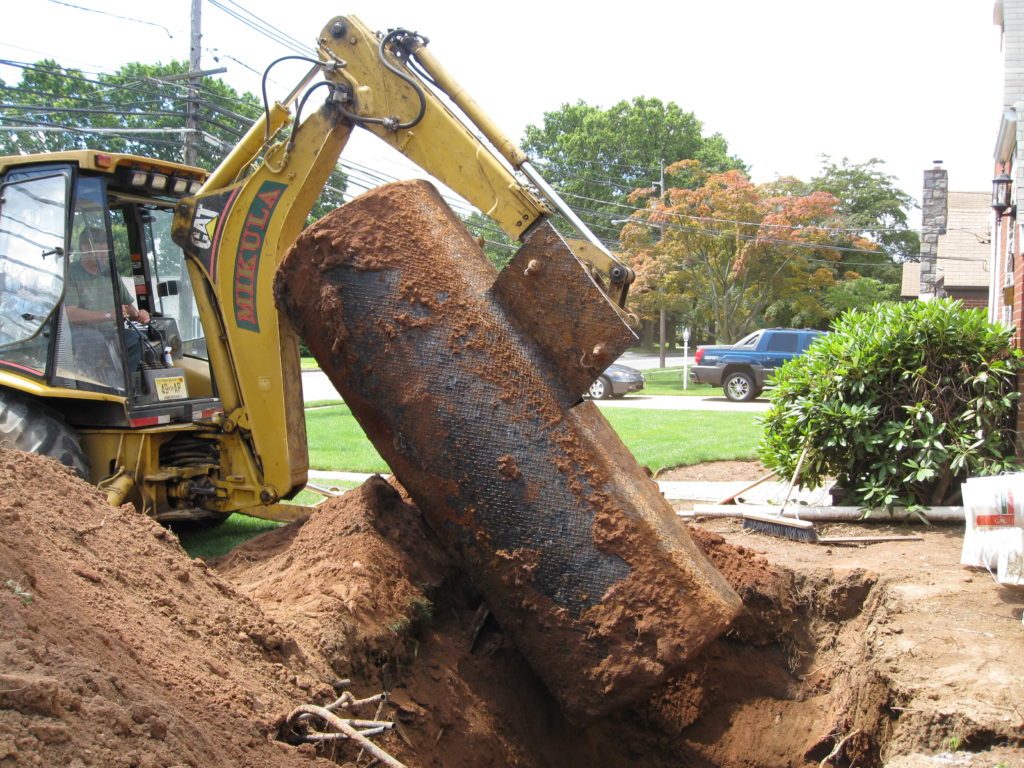
Risk of Not Replacing Your Oil Tank
If you decide not to get a new oil tank installed despite noticing signs of damage, you are setting yourself up for failure in the future.
While it costs money to have an oil tank removed and a new tank installed, it will cost considerably less than if your tank seeps contaminants throughout your property and you have to pay for its clean up and removal. It could very well end up ruining your lawn and costing you thousands of dollars.
In addition to the eventual burden of oil seeping from your tank onto your property and the properties adjacent to yours, you could find yourself financially liable for not only the clean up of your property, but for that of your neighbors’ properties as well.
An uncontrolled oil leak is also extremely hazardous to the environment. As the owner of the land from which the oil tank is leaking, you could also be held financially responsible for the soil remediation of all affected properties.
As you can see, leaving your oil tank untreated and not worrying about replacing it can end up disastrous and can also lead to serious financial burdens. While you may be apprehensive about paying for an oil tank replacement, it will be much cheaper than waiting until disaster strikes; then, you could not only be responsible for replacing your tank, but the risks outlined above can end up costing you much more money in the long run.
But is there anything you can do if you are not sure if you even have an oil tank buried underground?
Oil Tank Scans
If you have recently purchased a home and you are not sure if there is an underground oil tank buried beneath the property, the team at Mikula Contracting can help! A buried oil tank is practically impossible to spot with the naked eye, and as the new owner of said home and property, it’s something you should absolutely be aware of.
We can gladly perform a scan across your property for a buried oil tank and, if we find one, we will certainly inspect it for you. If you’ve purchased an older home, it’s likely that there will be an old oil tank hidden underground.
Depending on the age of the home and the amount of time in which it was vacant, it is likely that the underground oil tank has been improperly buried or, at the very least, corroded. This is not only a huge environmental and safety hazard, but could potentially be a big liability for you, as homeowner.
At Mikula Contracting, we can not only find and inspect your buried oil tank, but we can also replace it with a new tank, whether you prefer it to remain underground or if you’d like it to be installed indoors.
If you notice any signs of damage to your buried or aboveground storage tank, contact the team at Mikula Contracting to schedule an inspection. We’ve been servicing oil tanks for decades, so we’ll know if your tank is repairable or if you’ll need to have a new one installed. Click here to get in touch with us today!
Telltale Signs of Foundation Issues in Your Building
If you see any signs of foundation issues, your building has structural problems that can’t wait. Here’s what to look for, and how to decide between repairs or demolition.
There’s a list of things that can compromise a building’s foundation and make it a hazard to those in and around it. The structure doesn’t have to be old — even newer builds can experience these problems. Sometimes these issues can be cleared up with repairs and maintenance. Other times, a demolition team may have to be called in.
Knowing what to watch out for can alert you to whether you have a salvageable structural issue on your hands or if the wrecking ball is required. Let’s start with the signs you’re most likely to miss and work toward the more obvious ones.
Easily missed foundation issues
Windows and doors can show subtle signs that your foundation is struggling. If you’re having difficulty opening and closing these fixtures, but they used to be fine, this could be a warning sign that your foundation has started to shift and is distorting the shape of the frames.
Lubricating the hinges should reveal if the window or door itself is at fault. If stubbornness permits, it could indicate a larger problem. A more obvious sign is if there are visible gaps between your door/window frames and the surrounding walls. You may also see these gaps behind things like worktops.
Don’t dismiss any musty odors and smells that can indicate damp, mold, and rot. It’s a mistake to think that moisture and mold patches won’t bring down the whole building, because they may be forming in the first place due to cracks in your structure (and cracks covered in mildew or mold are harder to spot). If it’s not a structural issue, some dehumidification, gutter maintenance or plumbing work should clear the moisture problem up.
More obvious signs of foundation trouble
Warping, tilting, or leaning of walls, floors, or ceilings are all signs that you should get professional advice immediately. Everyone should keep an eye on their property over time and look for these things. The naked eye can’t always see them, so use of a spirit level and notebook to record even the subtlest structural slanting.
The most obvious sign of all is cracking in the floors or walls. The slightest crack should always be a red flag to keep an eye on your structure because they can quickly worsen through seasonal expansion/contraction, structural pressures, and more. Swift action can allow you to repair early cracking relatively easily and affordably.
Foundation cracks often have a visual profile that differs from the less-pressing cosmetic variety. Any crack that is leaking water, runs horizontally (an indicator of increased perimeter pressure), or has the stair-step appearance may be a sign of foundation problems. Don’t hesitate to ask a professional their opinion; it may be a simple matter of brick and mortar repair.
You may need to contact a local housing inspector or engineer. Their skills can help you fully assess the strain on a property. The cost of these inspections varies by the service provider and sometimes locality, but it’s money well-spent to gain peace of mind and safety.
In the most severe cases, the building may have to come down. That’s a big deal, but it doesn’t have to be as stressful as you may fear.
Don’t dread demolition
It’s very common for people to feel uneasy about demolition’s destructive nature, but there’s no danger involved when you hire the right firm. It may be a messy business, but all the demolished material will be handled responsibly here in New Jersey. It can even become part of new projects in some very interesting ways.
Demolition may seem like an extreme solution, but when it’s necessary, it saves a building and its occupants from far worse things in the future.
Mikula will bring it down safely
Demolition with asphalt and concrete removal services has been a big part of our company’s history for more than 70 years, and our OSHA-trained team makes safety part of everything we do. That means looking after ourselves, our customers, and the surrounding environment.
Our demolition excavators come equipped with grapples to maintain precision control during the debris sorting process. We handle commercial projects and, if your demolition is residential, you can contact us for a free estimate. We’ll also take care of all the permits necessary to ensure project approval at the right levels.
Whatever the size of your exterior demolition, we’ve got the experience and the tools to do the job cost-effectively, efficiently, and, most importantly, safely. Get in touch with us at the link below if you have any structural concerns. We’re ready to help.
Mikula Contracting, Inc. provides commercial and residential customers with a wide range of excavation, demolition, environmental, trucking and soil materials services. For more information, call 973-772-1684 or email info@mikulainc.com
Trench Drains vs. French Drains: What’s the Difference?
Drainage systems are more than just holes in the soil. Trench and French styles are two effective approaches to move water offsite, but the difference between them is often misunderstood.
The confusion between trench and French drains is understandable for anyone outside the industry. The terms rhyme, they both involve trenches, and French drains aren’t really French. The defining difference is very simple, however: Trench drains are surface structures while French drains are subsurface ones. Let’s look at how they both work to keep water flowing offsite.
How Trench Drains Operate
Trench drains are also referred to as channel drains and are classified as an above-ground drainage method even though the actual materials are embedded into the ground. This drainage method involves digging a long, narrow trench and finishing it with a grated covering, giving the impression of a large piece of guttering in the ground.
Just like a gutter, trench drains redirect water away from areas where it could cause harm by presenting slip/fall dangers, causing surface erosion of the soil, or presenting other dangers. Once dug and laid, the trench drain must be connected to a local storm sewer or environmentally responsible waterway to direct water away from the site without damaging the ecosystem.
The surface area surrounding the drain must be neat and clear of all obstructions to allow the free flow of water through the grate. Trench drains can be applied at a gentle slope to aid with runoff and sometimes work with a sump pump to drain low-lying areas more effectively.
This kind of drainage can be installed temporarily or permanently with grate strengths varying in load-bearing capability. This kind of drain is exposed on the surface, so it may have to handle some serious weights. The lightest grating examples — Load Class A by ANSI standards — handle foot traffic, on up the scale to Extra Heavy Duty and Special Duty strengths — Load Classes E and F — which can handle passing loads of up to 10,000 pounds.
Trench drain materials range from plastics like polypropylene to concrete, while the grating which covers them can be plastic or steel. If a trench drain will be a permanent fixture, home or business owners can tailor the grating color to better suit its surroundings.
Explaining French drains
French drains are actually an American innovation, invented in the 19th century by a New England farmer named Henry Flagg French. He was the author of “Farm Drainage,” a book published in 1859 and widely considered to be the root of the entire science of drainage.
French drains are subsurface solutions consisting of a trench filled with gravel and a slotted or perforated pipe. A layer of protective, permeable fabric is placed along the bottom and sides of the trench after it has been dug to prevent soil and root intrusion and on top before the topsoil is replaced. Just like a trench drain, French drains siphon water downhill from a site, only this time that includes groundwater as well as surface water.
The gravel in a French drain can vary in size and acts as a sieve by straining out pieces of debris from the water as it passes through. Since these drains are sunk more deeply into the soil, they help draw out any water from the surrounding earth that could cause erosion, structural instability, or both.
French drains have toughness in common with trench drains since the French type must handle groundwater that’s subject to hydrostatic pressure (the pressure water exerts due to the force of gravity). French drains are very effective at redirecting water away from structures and preventing damage to the foundation. Their dimensions are site-dependent, but French drains are typically around a foot wide and can range in depth from inches to a couple of feet.
Let Mikula Contracting Solve Your Drainage Problems
Trench and French drains have one other very important thing in common: onsite responsibility. The first step to digging any trench is to research the lay of the land on factors like soil quality, utility line placement, and what permits are required at the local and/or state level. Any dig that starts without due diligence places the construction team, their clients, and the surrounding area at unnecessary risk.
The Mikula Contracting team has more than 70 years of experience in taking care of drainage jobs without shirking our community responsibilities. Trench or French, commercial or residential, we’re fully qualified and insured to create the solution your site requires. Water problems come in different forms — including stormwater, lawn water, and street water — but Mikula can solve them all.
We design and build the trench system that suits you to provide everything from surface, ground, and land drainage to rainwater drainage, standing water drainage, and seepage pits. We’ll talk you through the entire process and provide an honest, transparent quote. Connect with us at the link below and ditch all your drainage worries.
Mikula Contracting, Inc. provides commercial and residential customers with a wide range of excavation, demolition, environmental, trucking, and soil materials services. For more information, call 973-772-1684 or email info@mikulainc.com
Digging Into Site Prep for Commercial Construction Projects
Whether the project is construction or excavation, everything starts with laying a good foundation. Sites require diligent preparation before a project can get off the ground.
Site preparation is where a building’s future starts — a delicate time where professional care and respect for procedures set the project’s standard. Quality site prep is a deep process touching many bases of expertise. Construction teams will connect with architects, soil specialists, and environmental agencies to create a circle of professionals all working together toward the same goal.
Start With the Lay (and Law) of the Land
Some projects take more time to prep than others, but they all follow the same basic rules. A good construction firm will be familiar with all regulations governing construction projects. Federal, state, and local rules can and do play a part before the build begins, making proper permits and permissions essential prep documents.
The EPA’s guidelines for obtaining a Construction General Permit indicate the high standards expected from site prep and execution. While it’s a construction company’s job to disturb the land, they only have temporary permission to do so. Provisions must be made to minimize disruption to infrastructure, wildlife, and ecosystems before, during, and after construction. From there, a team can get itself on-site and continue further preparations.
Provisions for Construction Staff, Visitors, and Pollution Control
Construction teams may never live or work in the buildings they erect, but they’re certainly on-site residents until the job’s done. Weeks or months in one location require facilities like portable toilets and job trailers (moveable facilities which may house temporary offices, dining areas or provide storage room).
Provisions must be made to keep the site supplied with electricity and water for several purposes, and they may come through an on-site water tower, portable generators, or connection to local utilities. Sites often require septic tanks, draining tanks, and a temporary sewer to handle waste. Responsibly preparing for every form of water and waste management, man-made or natural, is a management best practice.
There are strict EPA rules and guidelines to keep workers and the surrounding area healthy and safe. Facility-produced water or rain/storm fall can wash harmful chemicals and debris from a site into local drinking and water sources. Proper site prep involves knowing whether the state or the EPA is the permitting authority for construction activity.
Soil Testing and Land Investigation
Water management is closely linked to protecting and preserving soil quality during site prep. Construction teams must know the strength, composition, and type of soil they’re about to work on. If it’s too weak or water-absorbent, it won’t be able to support a structure. Soil testing involves taking samples for analysis, and the teamwork between soil graders and construction workers is a vital link in the site-prep chain.
That soil data is analyzed to decide what measures need to be taken to strengthen the site for structural support. Sometimes, new soil may need to be brought in to compensate for a weakness. Other times, recompacting the existing soil may be enough to toughen it up. Once the project has s green light, the greatest care must be taken to prevent soil erosion and control sediment as the work progresses.
Developing a Site Plan
A site has its raw state and then how it looks after the construction team arrives with their equipment. Both must be combined into a site plan that clearly shows natural topography, project boundaries, placement of utilities, and any other pertinent information. For example, the placement of utility lines must be carefully studied to prevent damage, injury, or death before work gets underway.
Sites are organic things; even the best prep won’t protect a project’s layout from changing over time. The site plan must constantly reflect these changes while providing a guide for construction teams and third parties by showing safe entry, exit, and material deposit areas. Site plans may also include details of the surrounding area since man-made and natural features may have to be considered for the duration of the build.
The Public Face of Site Prep
When all the behind-the-scenes work of permits, geophysical research, and utility placement has been done, the public face of site prep can begin. This is the part of construction everyone can see taking place. It involves clearing the land of any natural or man-made objects, excavating, trenching, and setting up clear safety boundaries to separate the site from the surrounding area.
This is what people typically imagine when someone says “construction site” and none of it would be possible without diligent preparation. At Mikula, we know what it takes to prep a site. We’ve got over 70 years in business serving our community along with EPA and OSHA certifications. We’re here to provide the best in construction site responsibility and affordability.
Contact Mikula Today and Let Us Help Prep Your Next Project
Mikula Contracting, Inc. provides commercial and residential customers with a wide range of excavation, demolition, environmental, trucking, and soil materials services. For more information, call 973-772-1684 or email info@mikulainc.com.
Trench Shoring is Critical for Safe, Compliant Excavations
Trenches may be mostly empty, but they’re full of hazards that can cost workers their lives. Learn what the risks are and what every firm should know about safety.
Trench shoring – the process of steadying trench walls to prevent collapses or cave-ins – is an essential aspect of all excavation work. These walls can be securely propped in several ways, such as hydraulic or pneumatic shores, and may utilize steel, aluminum, or timber shoring material. The materials must be in the best possible condition to ensure worker safety.
While excavating firms have options in how they shore a trench, they’ve got no choice whether they will. The Occupational Safety and Health Administration (OSHA) has strict guidelines excavators must follow to ensure the safety of their trench workers. The Bureau of Labor Statistics records that 130 workers died in trenching and excavation between 2011 and 2016.
OSHA regulations require that protective steps be taken with trenches 5 feet or deeper unless the trench has been excavated in entirely stable rock. Those 20 feet or deeper require a protective system designed by professional engineers or based upon tabulated data by the same.
The Basics of Safe Trench Excavation
OSHA boils trench-sense down to four key steps: soil, slope, shore, and shield. Trench walls must be sloped backward to a ratio of 1.5 feet for every foot of depth. They must then be shored with supports and shielded with trench boxes. Trench boxes aren’t intended to shore up the trench, but to protect the workers from any falling objects or collapsing matter.
It’s the employer’s duty to ensure a safe entry and exit route for the trench such as steps, ladders, or ramps. All entry and exit routes must be no further than 25 feet away from any worker in a trench. All materials and equipment must be kept away from the edge of the trench to reduce the risk of workers being struck by falling items. Surcharge loads should be kept a minimum of 2 feet away from the trench edge.
The Importance of Soil in Trench Shoring
Soil analysis is OSHA’s fourth recommended step. This process helps in determining if the ground can support the required degree of trench slope and shoring. A thorough inspection of the trench is required daily before any worker can enter, mainly because soil can be a very unpredictable medium. The site may seem perfectly adequate for a trench when a team starts excavating, but changing soil quality, water content, weather, and on-site activity can all make the trench potentially dangerous.
An inspector will assess the soil and shoring, then look for other risks like standing water or electrical and gas lines. Standing water may not seem very dangerous, but it can gradually erode soil and weaken the integrity of trench walls. The inspector’s findings must be made available on request for an OSHA compliance officer. Trench inspections are further recommended at the start of every shift and especially following strong natural events like heavy rain or winds.
Underpinning the trench may also be necessary during some excavations. This involves either deepening or widening the trench, processes that distribute the load over a wider area or make use of a stronger stratum of soil. The extent to which these measures will be required depends on the site, but the price of ignoring them can be deadly.
The Cost of Non-Compliance
The real cost of ignoring safety is measured in human injuries and lives. Beyond that, the fines for violating OSHA regulations are also significant. They are adjusted annually for inflation and currently run as follows:
- Willful or Repeated Violations – $124,709 each.
- Serious, Other-than-Serious, and Posting Requirements Violations – The maximum penalty is $12,471 per violation.
- Failure to Abate – $12,471 per day.
For more information, companies and the public can refer to OSHA’s 28-page education booklet and call 800-321-OSHA (6742). OSHA provides many other educational trench resources, such as this video guide to soil classification and the process of trenching itself. The National Institute for Occupational Safety and Health offers prevention tips and invaluable disaster response information should the worst occur.
July of this year saw a national Safety Stand Down organized by the National Utility Contractors Association. That’s plenty of time to get ready for next year. In the meantime, their website offers more great resources about this critical issue. This 5-step checklist is another excellent go-to when walking around onsite. It can be used to make an informed assessment of trench safety and any steps that need to be taken.
Trust Mikula to be Fully OSHA-Certified
The safety of our team is a priority that’s kept our family firm growing since 1946. We’re happy to share this knowledge with our readers because it’s second nature to us. Mikula Contracting is fully OSHA-certified, and this is a badge of honor that means every member of our team knows the rules and is dedicated to keeping themselves and the people around them safe.
We’re also fully insured throughout the state of New Jersey and offer many other services besides excavation. Get in touch with us at the link below for more information on our excavation experience and commitment to sitewide safety.
Mikula Contracting, Inc., provides commercial and residential customers with a wide range of excavation, demolition, environmental, trucking, and soil materials services. For more information, call 973-772-1684 or email info@mikulainc.com
3 Ways Your Small Business Can Go Green
Your business may be small, but going green is the biggest and best move it can make. Discover some sound changes that can make a huge difference to the environment and your bottom line.
One of Mikula Contracting's core values is that we care how we affect our customers, our community, and our world. We believe eco-friendly business principals are more necessary now than ever, not just in our line of work but for every business in America. And we believe businesses that embrace those principals will excel today and in the years to come.
Businesses that run sustainable enterprises will outperform those who don’t as global consumer attitudes toward green issues change. Your customers care about your environmental impact, they’re going to care more in years to come, and the green practices you implement today will help grow your loyal customer base tomorrow.
Every business should take steps to reduce their negative impact, regardless of operating size. It’s a common mistake for smaller businesses to think only the “big boys” are doing any real environmental damage. In truth, small businesses can make a massive difference by going green because the U.S. has such a huge number of them — 30.2 million small businesses at last count. That’s 99.9% of American businesses!
If you’re a small business owner, here are three tips you can use to help save money, New Jersey, and the world.
Go green with your power and appliances
Small businesses often burn the midnight oil to compete, but we all know it isn’t oil we use these days. Businesses can save money and the environment by switching to LED bulbs or CFL lighting. These energy savings can quickly add up to hundreds of dollars for every green bulb in use.
Any appliance displaying the Energy Star label gives business owners a heads-up on how much energy the device will consume over time. This allows for better long-term budgeting and greater control over those utility bills, freeing up more cash per year to grow the business.
Energy audits are another good way to find out how much it costs to power your business. If you’re a New Jersey business in the right sector, the state will perform an energy audit and cover 100 percent of the expenses. Even if you don’t qualify for that deduction, every NJ business should investigate all the energy-saving incentives to optimize its bottom line.
Boost your biodegradables
If you’re in the packing business, biodegradable packaging should be part of your business model. If you’re not, support the companies who do pack in a green way. Small businesses can also do away with plastic cups and cutlery and replace them with the many available alternatives. All that business paperwork could be going onto recycled paper which eases global energy strains by 45 percent and cuts waste by 50 percent.
Businesses can go one better than biodegradable by skipping paper entirely and relying on digital communications and stored data. Every business should recycle plastics and paper wherever possible as well as stay well informed on New Jersey’s recycling rules. Recycling saves money for everybody in the community.
The cleaning products used on business premises can also play a big part in polluting that property and the ecosystem around it. Choosing cleaning agents responsibly will help your company truly going green. If your business soaps down vehicles onsite, hoses oil spills from parking lots, or simply throws the floor suds out the back door, think twice. This could be causing serious damage to the soil.
Understand the importance of soil remediation
This is a process used to treat soils contaminated by heavy metals or other pollutants by removing and converting them into less harmful products. It’s a common hazard for both New Jersey commercial and residential properties due to the presence of old underground heating oil tanks. A cleanup could cost a small business upwards of $130,000.
New Jersey is also prone to flooding, which can strip away the topsoil around a business. Without that layer, the ground is left wide open to greater damage from pollutants and vulnerable to further floods. Excavation work can also produce 70 percent of harmful particulate matter in urban areas, making it important for small businesses to work with responsible contractors.
Small businesses must ensure they’re complying with the Environmental Protection Agency (EPA) and its rigorous standards. EPA compliance is crucial because the fines are steep:
- For negligent violations: 1 year in prison and/or $2,500 - $25,000 per day. Subsequent convictions increase to 2 years and/or $50,000 per day.
- For knowing violations: 3 years in prison and/or $5,000 - $50,000 per day. Subsequent convictions increase to 6 years and/or $100,000 per day.
Small businesses must be especially careful with their finances and reputation. It’s vital they hire a contractor with the credentials and caring attitude needed for green digs.
At Mikula Contracting, we have all the right EPA qualifications plus over 70 years of experience in the industry. We work alongside New Jersey’s foremost environmental firms to serve your soil remediation needs and make sure your shift toward a greener operating model saves you as much money as possible.
Mikula Contracting, Inc., provides commercial and residential customers with a wide range of excavation, demolition, environmental, trucking, and soil services. For more information, call 973-772-1684 or email info@mikulainc.com
How Long Does a Commercial Pool Last?
On a sweltering day when the sun feels like it’s about 10 feet over your head, there is nothing quite as nice as jumping into a pool. Whether you actually swim, float, or just submerge yourself up to your chin, once you’re in, you don’t feel like getting out for a while. A pool can be a big reason why people go on vacation. Heck, entire resorts have been built around their magnificent pools. They can also be a big draw for apartment complexes and even senior living communities.
The problem with pools, however, is that they require a lot of work to maintain and they don’t last forever. Over time, a pool’s many parts will wear down, wear out, and need to be fixed or replaced. Here are some guidelines for how long you can expect pool components to last before action needs to be taken.
Concrete shell
The most important part of the pool is the shell, which is its foundation. Generally, this is built with solid concrete and rebar. A common issue for older pools is that cracks form in the concrete, which exposes the rebar to oxygen and can lead to rust or deterioration. The concrete shell typically lasts about 25 years before requiring resurfacing or re-tiling and can remain viable for decades so long as they are properly maintained.
Note: Some shells today are made of fiberglass, which has a projected lifespan of 25 years and may need resurfacing after about 10.
Liner
Once the shell is constructed, the liner is put on. In most cases, this is made of a thin but strong vinyl, which makes it susceptible to rips and tears. Harsh pool chemicals can also eat away at it. With proper cleaning and maintenance, a vinyl liner will last around 15 years.
Pump and motor
Pumps are necessary for circulating both water and chemicals like chlorine, and the motor enables the pump to do its job. Because the pump and motor run a lot — perhaps as much as 12 hours a day – they will probably need to be rebuilt or replaced around the 10-year mark.
Filters
A filter system is essential for keeping the pool clean. Most filters use sand cartridges or diatomaceous earth to remove dirt and debris from pool water as the pump cycles it through the system. Even with regular cleaning, these filters won’t be able to do their job properly after a while, and generally need to be replaced every 10 years.
Heater
Though not every pool has a heater, this is a pretty common feature in places like hotels. There are many varieties, including ones that run on natural gas, propane, and solar power. Because heaters may also be used quite frequently and things like chlorine wear them down, their lifespan is usually 8-10 years.
Cover
While pools can be used all year long in some places, they need to be closed for the colder months in most locations. This means they need to be covered. Like everything else with a pool, covers deteriorate due to an accumulation of stormwater, debris, or just being exposed to the elements for extended periods of time. They will need to be replaced every seven years.
When it’s time to close the pool
When you add up all the repair and replacement projects — in addition to daily maintenance — the costs and the headaches can become overwhelming. Eventually, many commercial properties with pools decide to just get rid of them. Aside from the enormous expense, there are also liability issues that can be avoided.
Even when owners decide to move on from their pools, it’s not as simple as slapping a “closed” sign on the gate. You will need to make sure the water it removed properly (most localities have laws against simply draining chemical-laden water into the local aquifer) and the hole must be safely filled in. It’s the last project you’ll have to do on the pool, but one that’s much easier with professional help.
If your pool just isn’t the attraction it used to be and the upkeep isn’t worth it anymore, get in touch with Mikula Contracting. Removing old and possibly dangerous pools is one of our specialties. For a free quote, give us a call at 973-772-1684 or send a message through our online contact form.
Why Commercial Excavations Need to be Green
Excavations are a delicate process. Failure to comply with the Environmental Protection Agency’s guidelines can cause lasting harm to the public, the environment, and your business’s bottom line.
There’s much more to a successful excavation than digging a hole and filling it well. Factors like stormwater, pollutants, power conduits, and public safety all come into play.
Every New Jersey excavation needs to be environmentally responsible. Nature is a delicate ecosystem, and even the slightest alteration to the landscape can cause a knock-on effect of damage. The Environmental Protection Agency (EPA) set the Construction and Development Effluent Guidelines and Standards in 2009 to monitor best practices on excavation sites. Here’s what you need to know about those rules and if your excavation makes the grade.
Minimizing soil erosion
Soil erosion is the degradation or complete removal of the top layer of soil. This top layer plays a crucial role in maintaining any ecosystem. If it’s compromised, the land becomes far more vulnerable to pollutants, as do waterways. Excavations always involve topsoil displacement, but the EPA rules mandate that only the project area be affected and not the surrounding land.
A lack of quality topsoil also increases the risk of flooding, and that’s a problem New Jersey already struggles with. Federal codes require that every project implement erosion and sediment controls to limit the velocity and volume of stormwater discharged during a dig.
Stormwater moving in mass and at speed hits topsoil hard, stripping it back (termed “scouring”) or removing it entirely. Special attention must be paid to sloping land, as disturbing soil on a slope can displace a lot of earth. This exposes vulnerable layers of deep soil to erosion and pollution.
Stabilizing displaced soil
Soil disturbed during digs must be stabilized immediately, regardless of whether the construction team has left permanently or only temporarily. There may be site-specific exceptions depending on the project that can require soil to remain disturbed, but these are exceptions.
Soil stabilization is important because wet, unstable soil is a safety hazard to both the excavation team and anyone else in the area. Soil is stabilized by adding either primary or secondary binders, such as cement, ash, or lime. These cause a reaction with the moisture already in the soil to create a binding agent that helps prevent a landslide.
Pollutant control
Factors like oil leaks and spills are common during construction work, but they pose added risk during excavations that expose delicate undersoil. Even soaps and solvents used to clean vehicles are viewed seriously by the EPA because runoff can negatively impact soil, plant growth, and animal life.
Fuels and other potential hazards like construction waste, general human trash, and water from washed concrete (which may have been treated with preservative chemicals) can add up to a significant environmental threat as well.
Particulate matter (PM) is a nearly invisible pollution threat at excavation sites. These tiny particles can cause great damage to human health and the environment, and excavation sites can account for up to 70 percent of harmful PM in urban areas.
PM includes acids, organic chemicals, and man-made compounds from fuels, metals, soil, and dust particles that can irritate the eyes and skin. At its worst, inhaled PM can injure the lungs and heart. Every excavation site must minimize or remove these pollution risks by implementing chemical spill and leak prevention and response procedures.
Protective measures and the cost of non-compliance
Applying the EPA’s Best Management Practices (BMPs) helps excavation sites contain the risks of soil erosion, displacement, and pollution. Some or all of these may be required depending on the size of a dig.
Failure to comply with the EPA’s guidelines has serious consequences. The Clean Air Act exists to prevent issues like particulate matter and exhaust fumes, and the EPA closely monitors runoff. These measures pay added attention to the pollution potential of underground storage tanks, which are a classic problem for many New Jersey excavations.
The EPA won’t hesitate to apply criminal enforcement to any excavation site suspected of carelessly endangering the community or environment, with penalties including years in prison and steep fines. EPA figures are currently:
- For negligent violations: 1 year and/or $2,500 - 25,000 per day. Subsequent convictions 2 years and/or $50,000 per day.
- For knowing violations: 3 years and/or $5,000 - 50,000 per day. Subsequent convictions 6 years and/or $100,000 per day.
Hiring anything less than a seasoned professional firm is a bad move for you, your community, and the environment. The Mikula team will protect your personal interests and do an EPA-approved job.
Let Mikula handle your next dig
Excavation teams face many risks, and the Occupational Health and Safety Administration (OSHA) enforces strict standards for worker safety. Mikula Contracting offers the perfect combination of EPA qualifications and OSHA standards combined with over 70 years of excavation experience. Get in touch to make sure your excavation obeys the law and keeps everyone as safe as possible.
Mikula Contracting, Inc. provides commercial and residential customers with a wide range of excavation, demolition, environmental, trucking, and soil materials services. For more information, call 973-772-1684 or email info@mikulainc.com
Pool Past Its Prime? Here’s What You Can Do
Commercial pools work overtime to keep crowds happy, and eventually, time and use take their toll on even the best-maintained facilities. Here’s how long you can expect a pool to last and what to do when it’s removal time.
Commercial pools are built to be tough, but eventually, they all need to be removed or replaced. Long-term wear and tear will break down the shell and other components until your building’s pool is more of a hazard than a hot spot.
A pool’s lifespan depends on how well it’s maintained, but things like cracks, loose tiles, torn liners, and necessary landscaping all increase maintenance costs as the amenity ages. A commercial pool with a concrete shell and an attentive owner could see up to 25 years of use, or even longer if it’s made of fiberglass. (Some optimists say a well-tended fiberglass pool could last an owner’s lifetime.)
Concrete designs typically need resurfacing halfway through their lifespan, but they still don’t usually make it past a quarter-century. Concrete also requires more chemical treatment over the years because the porous surface can trap and grow bacteria, and that contributes to its shorter lifespan. Fiberglass is more flexible, which makes it tougher and able to withstand more internal impact as well as hydrostatic pressure.
How hydrostatic pressure affects a pool’s lifespan
Hydrostatic pressure is an environmental factor that contributes to the wear and tear on a pool in a couple of ways.
First, the everyday weight of the water pushes down on the floor of the pool, adding pressure and strain to its shell. Then, after a heavy rainfall or several accumulative showers, the surrounding earth can absorb that liquid and become denser. This adds mass to the soil, which pushes against the pool shell from the outside with that extra weight.
External hydrostatic pressure adds stress when the pool is full, but even more so when it’s empty and there is no water weight within the shell to push back against that force.
It can seem like the odds are against you. A pool full of water is under stress from the pressure on the inside, but an empty or partially empty pool is being crushed by the fluctuating weight of the soil around it. With the amount of rain we get in New Jersey, the ground can absorb a lot of moisture and lean heavily on your pool walls.
Pool removal won’t leave a hole in your grounds
Pools are an attractive addition to a property, and some property owners may worry that removing one will leave an ugly hole in their landscape. But the space is legally required to be filled in safely, and that usually includes some landscaping that will leave an attractive space where the pool used to be. Your grounds can look even better after removing a pool than they did with one.
Removing and disposing of all the water and waste material from the old pool site must be done to NJ state guidelines to avoid pollution and other risks. Complying with these regulations, as well as ensuring that the hole is safely filled in, is a very important part of the commercial pool removal process.
Is your pool past its best? Costs could start to mount for replacing multiple parts and other repairs. It’s better to commit to professional pool removal before you start to sink in repair expenses or, even worse, litigation from injured swimmers.
Weighing removal costs against legal fees and damages
Commercial property owners may ignore or delay a pool removal because they’re afraid it’s too expensive. Take a moment to consider how much more expensive lawsuits can be if the property owner is deemed legally negligent when the pool causes an injury.
Another thing to consider is just how much of a mess, financial and otherwise, could be made if you attempt to remove the pool yourself or hire someone with less than ideal experience. Severed power lines, gas lines, and fines for working without a permit are all dangerous and draining expenses you want to avoid.
Mikula can provide an estimate for your project with just a little information about your pool. The size of the pool and materials used in it will factor into the cost of any removal job, so it’s a good idea to get an estimate before committing to any plan of action.
Ready for a removal? Let Mikula do it right
We handle pool removal for apartments, senior living communities, and hotels throughout Essex, Hudson, Bergen, Passaic, Morris, and Union Counties. Mikula is a family-run business that puts safety first by training all our team members to be OSHA-compliant. We’re fully licensed throughout the state of New Jersey and take care of all inspections and permits to give our client’s peace of mind.
Mikula Contracting, Inc. provides commercial and residential customers with a wide range of excavation, demolition, environmental, trucking, and soil materials services. For more information, call 973-772-1684 or email or email info@mikulainc.com

